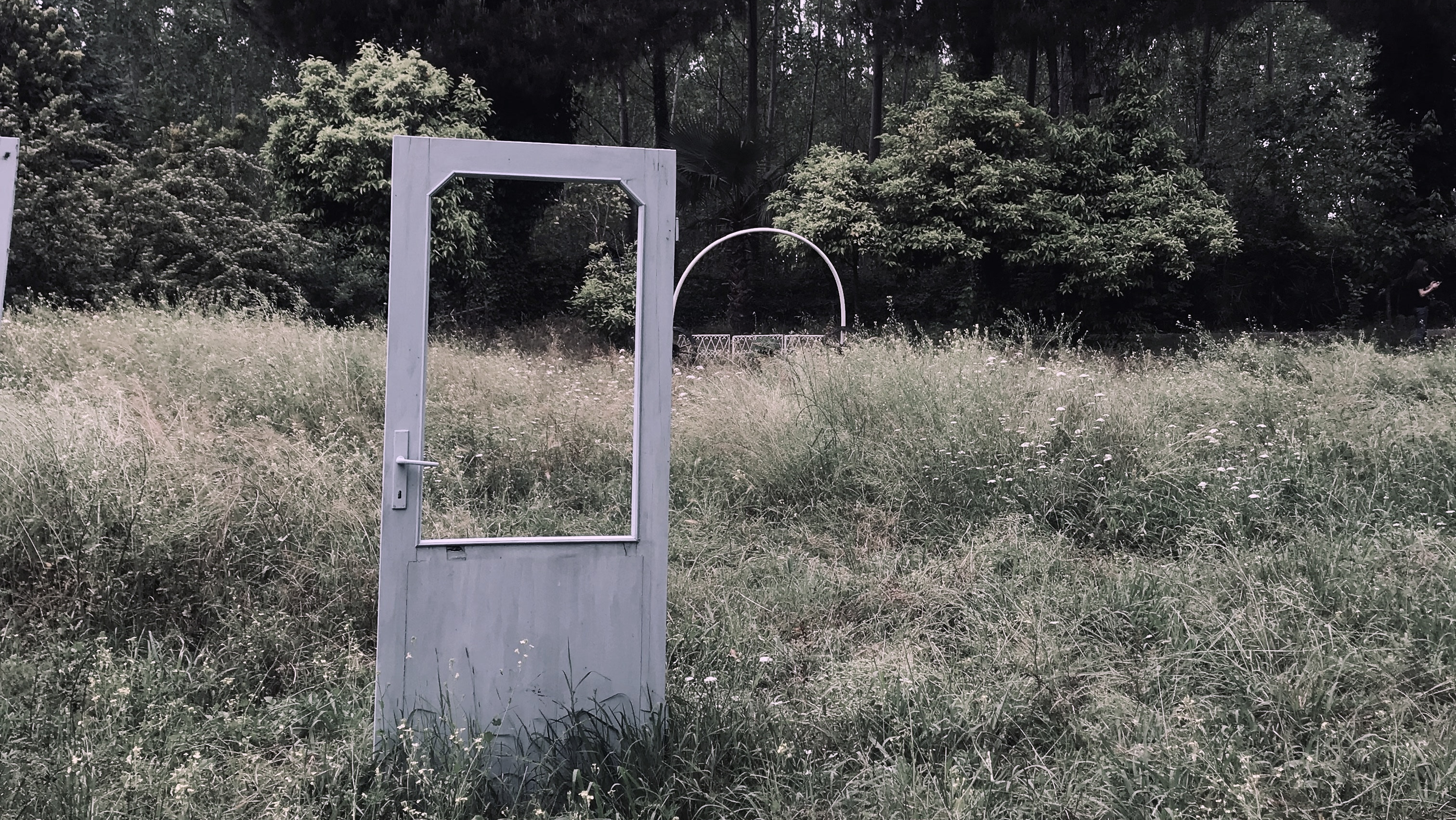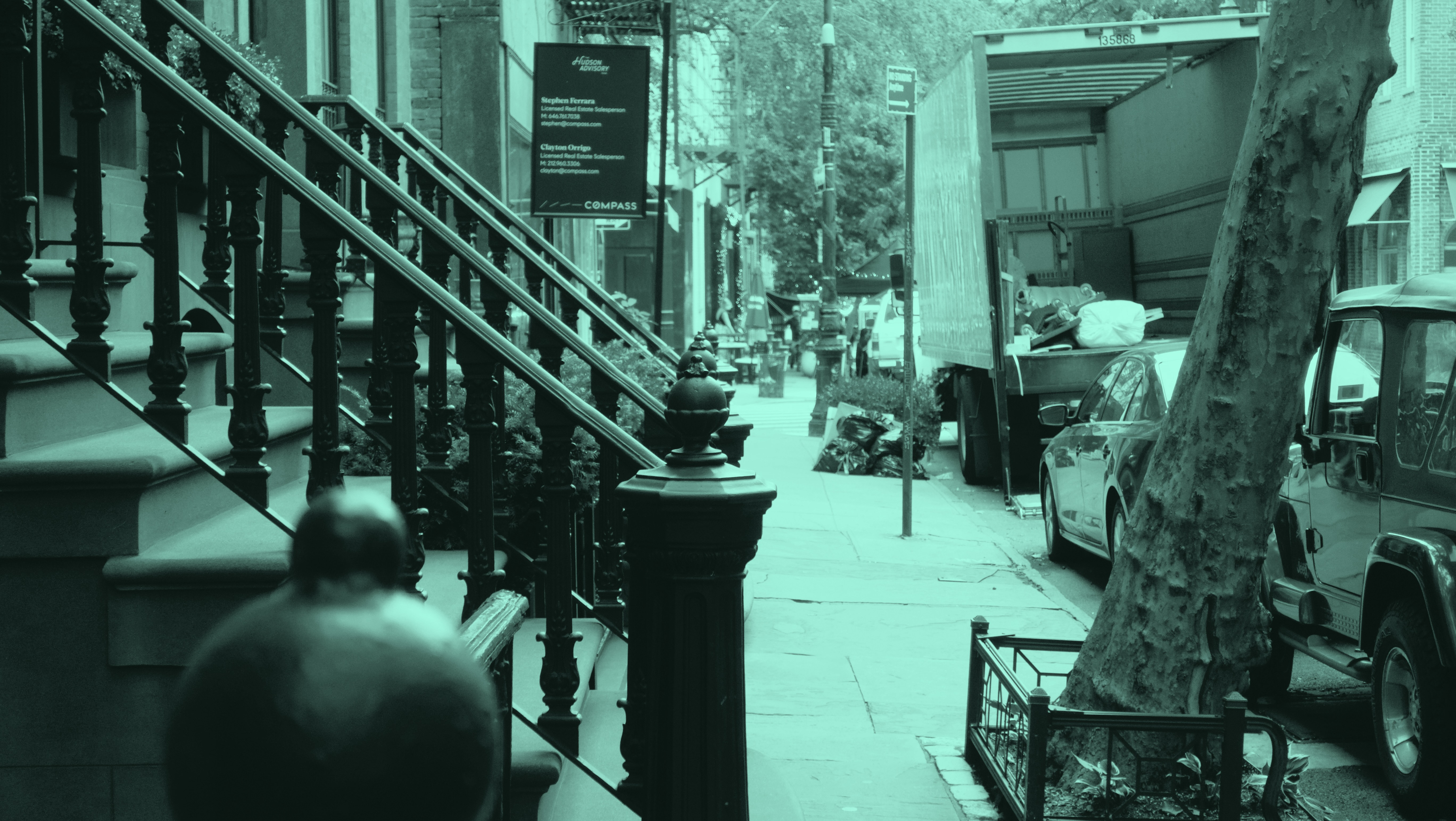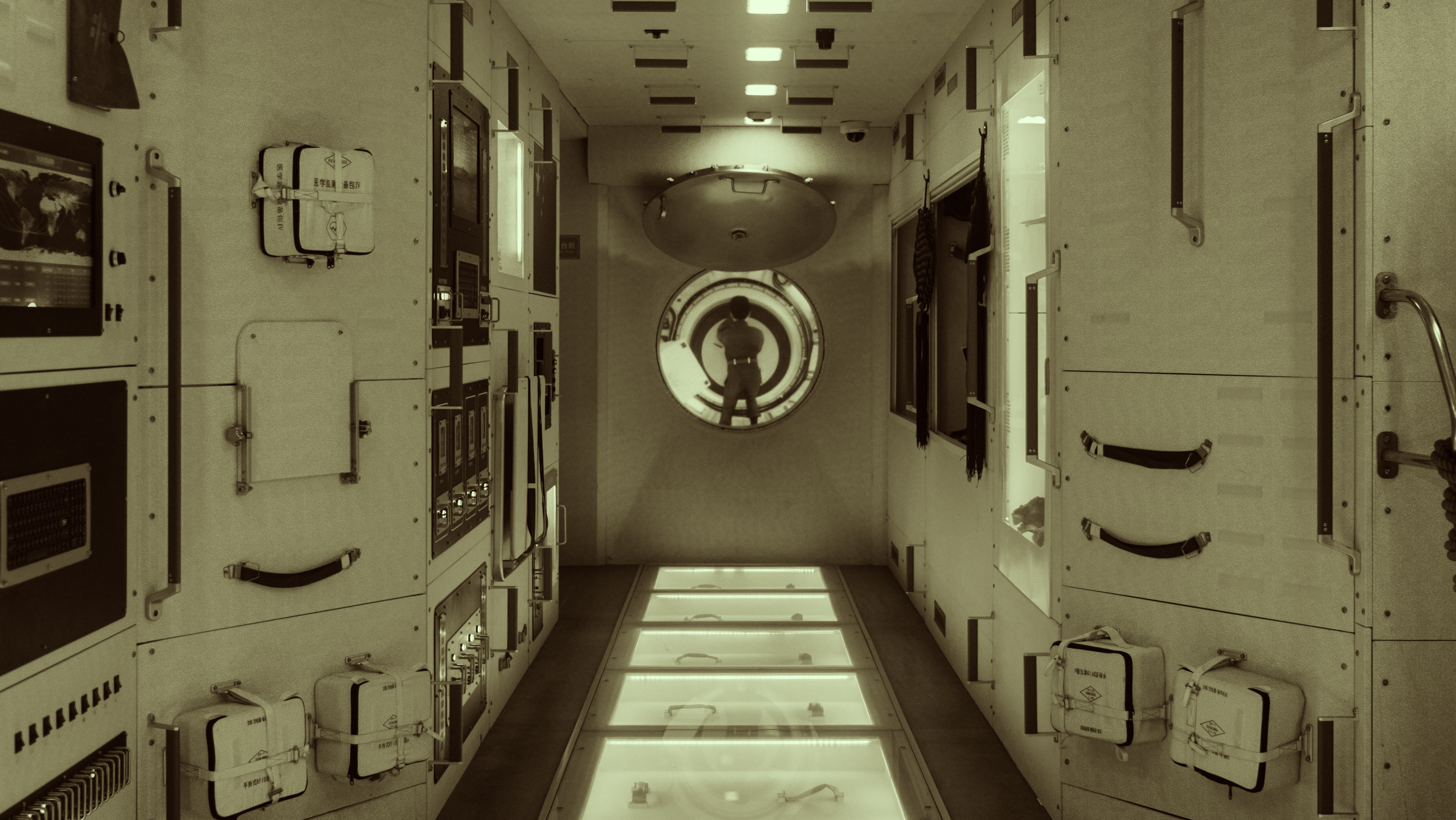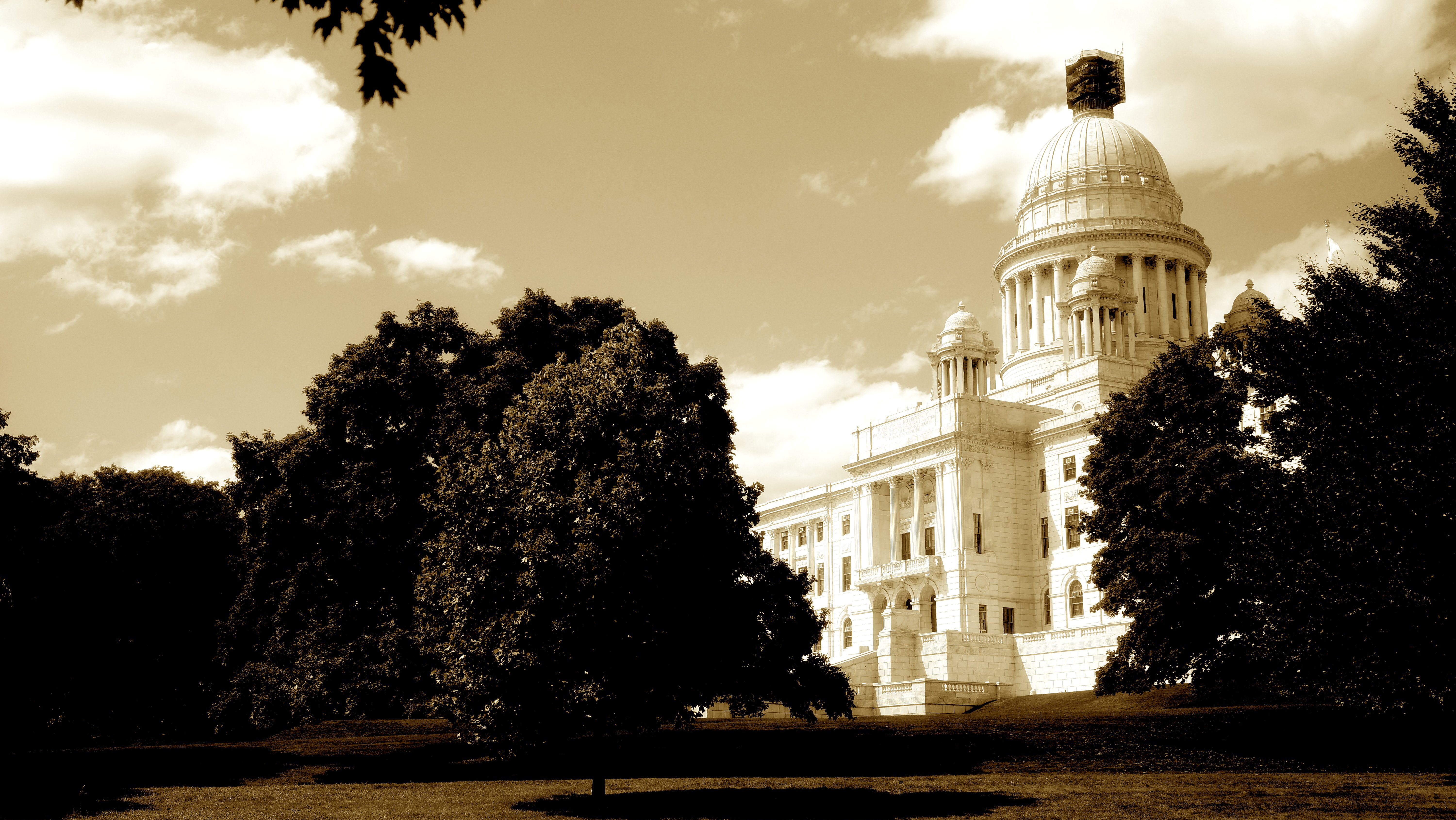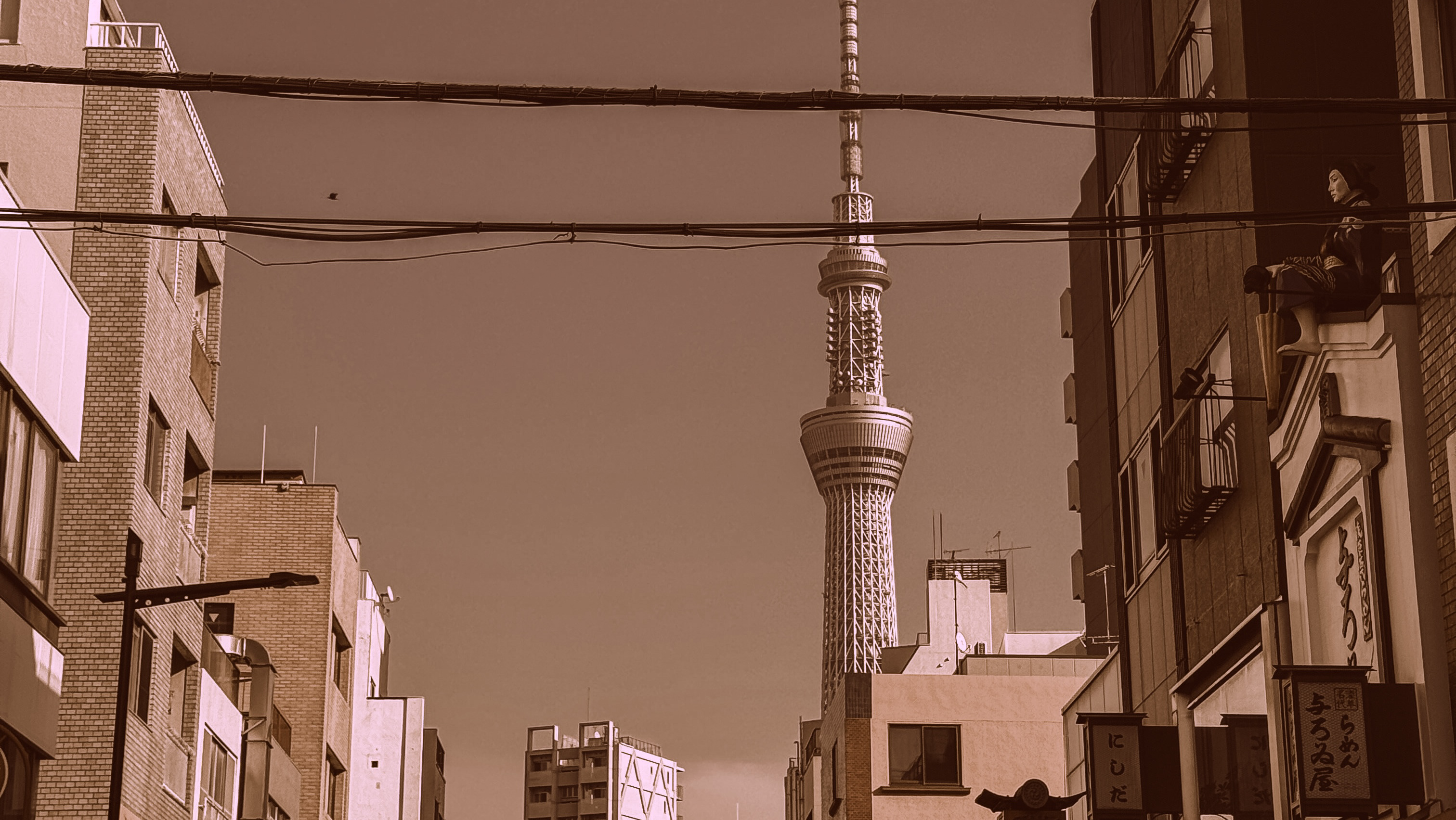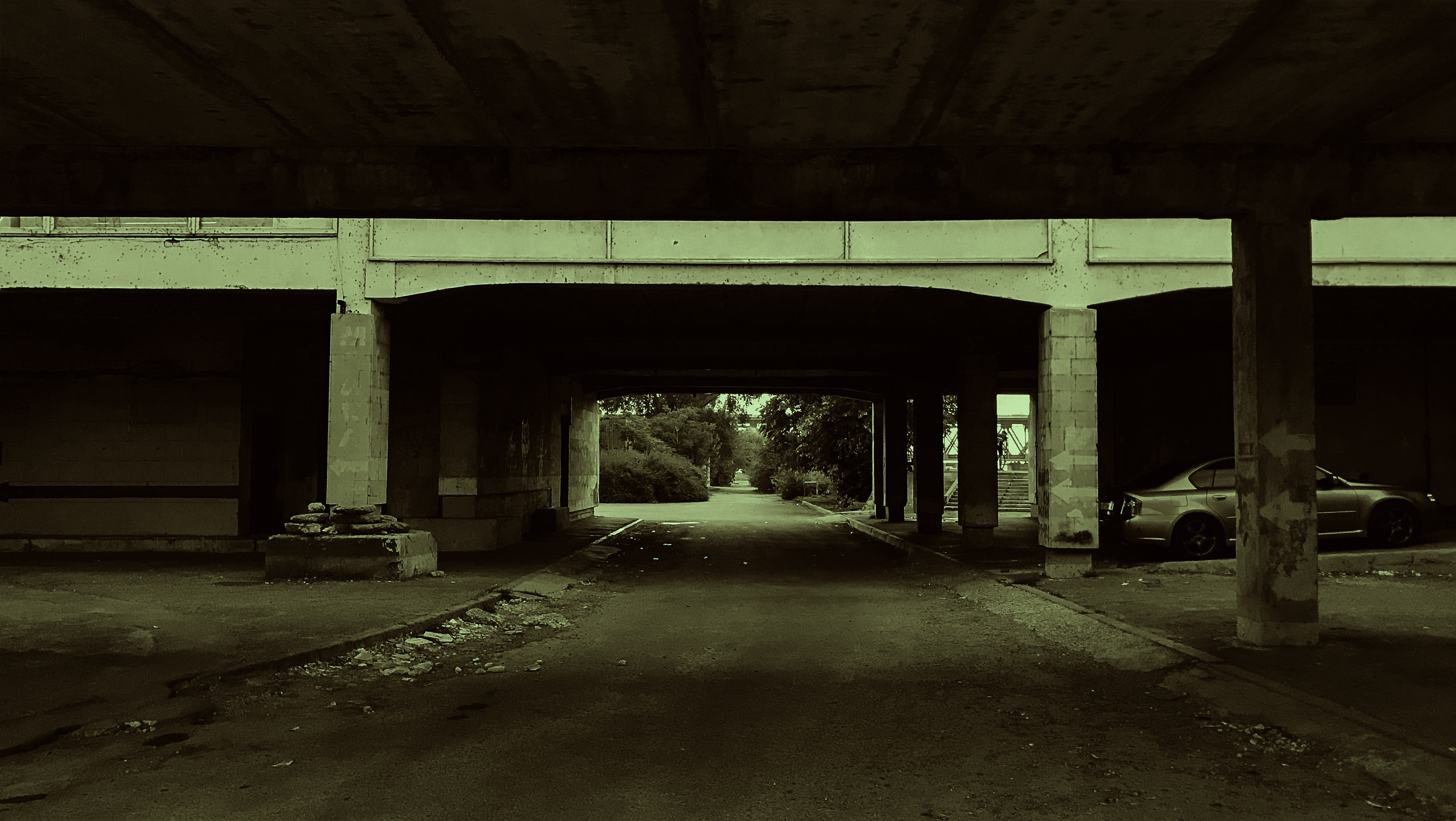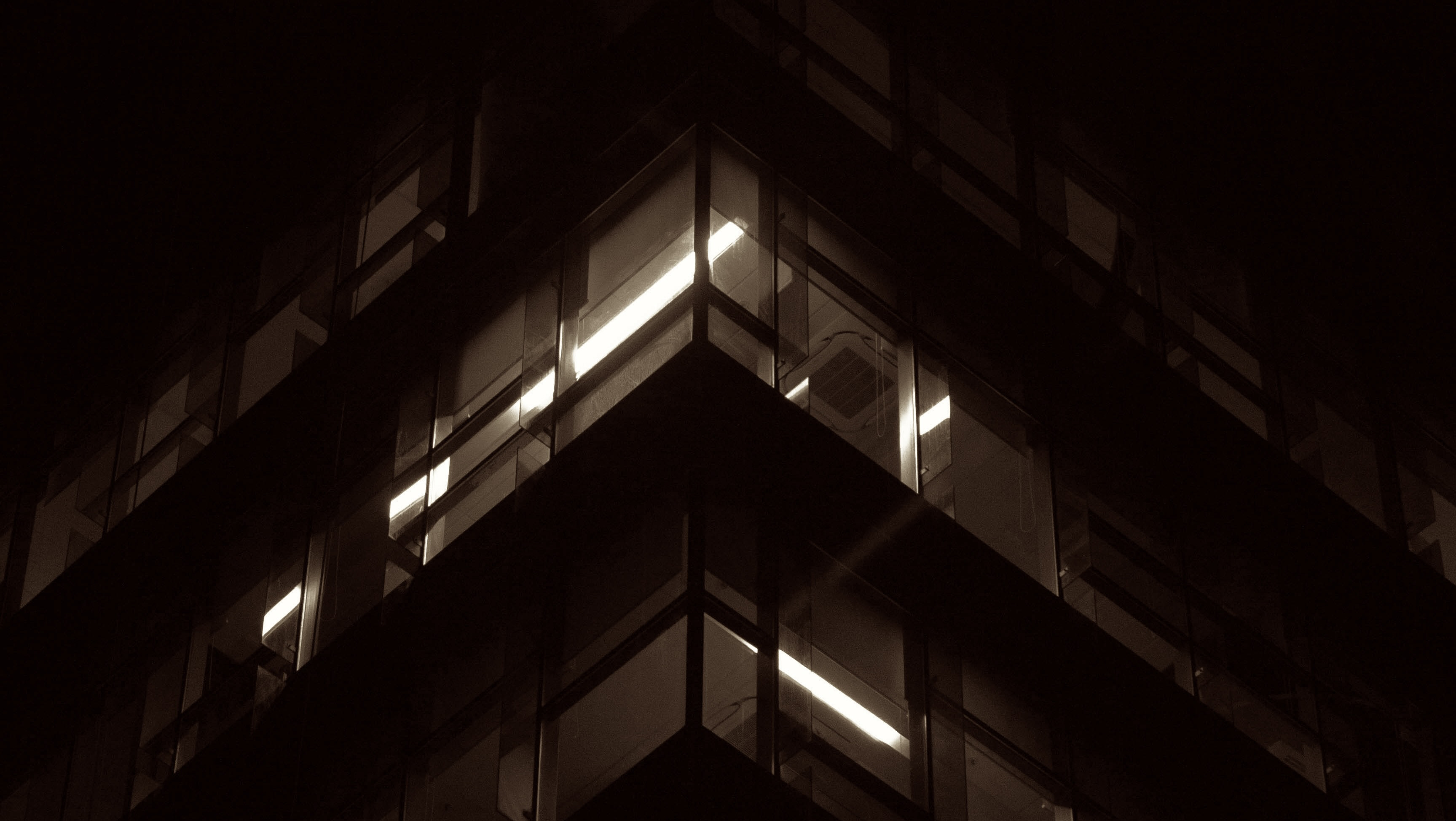Mr. Duncan bristled at the metaphor life was throwing at him outside of South Lincoln High School. Someone had removed the word ‘school’ from the sign, leaving a weather-stained reminder of how neglected this crumbling building really was. How saplings poked through the concrete providing shade to whatever trash had blown in across the abandoned parking lot next door. How the bustling sounds of Chicago had all but abandoned this neighborhood. This place was uncomfortably close to rock bottom for Duncan. He almost didn’t show up.
The night before, he drove by with his wife, Cho. He wanted to get a feel for the place but instead spent half an hour shooting the school sour looks while reciting his resume under his breath. I’m a published historian, for God’s sake, he seethed, I’m a member of the Historical Society of America. I went to Harvard. Cho, always with a calming touch, placed one hand on his and the other on her pregnant belly and reminded him that he was a former member of the Historical Society of America, and that they had a baby on the way to consider. Duncan took a deep, sobering breath and sped away, dreading his return the following morning.
Ancient linoleum floors lay scuffed from thousands of dawdling sneakers. Walls paint-chipped and adorned with faded murals from decades ago when school spirit was still a guiding force at South Lincoln. A trophy case filled with the accomplishments of generations much older than Duncan’s thirty five years. He caught his reflection in the display case, and admired his appearance. Thick rimmed glasses hid his handsome face. A frumpy tweed blazer covered his trim physique. He dressed like the elder scholars he hoped to one day join in the annals of history. But in that moment, he felt as if he had already walked into a tomb, one that no archeologist would discover for a million years.
Nobody was in yet, just the janitor and the lunch staff, their preparations echoing through the empty hallways. Duncan found his classroom on the fourth floor after several redirects sent him up and down the stairwells, in part because the elevators hadn’t worked in fifteen years. His skin was clammy when he finally set his worn leather satchel on his desk and he considered if it would make a negative impression to remove his blazer and wool sweater, and just teach in his oxford and chinos. But he quickly set the thought aside. It was better to be overdressed, he thought, and really set the tone for the demanding course load he had put together for each of his AP history sections.
He had opted not to come the week before to set up his classroom and mingle with the other teachers. He was in denial. Duncan didn’t see this teaching job as a long term posting in his journey to becoming a world-renowned historian. It was a blip. A mea culpa to get him back in the good graces of the Historical Society and, with any luck, get a serious look from publishing companies at his proposal for a six volume collection exploring medieval law. And this time, he promised himself he wouldn’t let his personality get in the way of his ambitions. He had learned the hard way that there was a hierarchy in the world of historical appreciation, and if he wanted to excel, he would need to keep his opinions to himself. He understood it was a world that benefitted the seniors of the profession, after all. The ones who themselves had become living monuments of history. And Duncan knew that, if he bided his time, it would be his moment eventually. Someday.
The bell rang for first period. Duncan braced himself for the nightmare he’d been dreading these past seven months. A reality staring back at him in the form of twenty five despondent students, barely awake and only a handful with books and notebooks out on their desks. Some flipped through their LookingGlass headsets, a blatant violation of school policy, he thought. Others casually ate their breakfast and chatted with classmates. There was no discipline among them, no desire to learn. It felt more like a study period than an advanced history course. Duncan thought back to his interview, when he asked what criteria was used to place students in AP history, and how Principal Lee replied to his question with a shrug and a shuffling through papers and a promise to get that answer to him before the start of the semester. An answer that never came.
“Good morning,” Duncan said, clearing his throat, “This is AP history.” His words were met with no enthusiasm, only a low groan from the swarm of teenagers assembled before him. “Let’s open our books to chapter one,” he went on. Some of them did, others ignored him. But he continued nevertheless, reading through the lesson he’d prepared on the French Revolution while his class fought to keep their eyes open. And at the end of forty five minutes, a bell graciously released him from this first taste of misery. He looked at the time. Six periods to go, he thought.
The next three classes were progressively worse than the first. Not because of the blank stares and side conversations students engaged in during his lectures, he’d grown used to that already; it was because it was dawning on Duncan that if he couldn’t achieve success in a failing high school and get through to these kids, it wouldn’t matter how many books he’d published or how many prestigious awards he’d won, he’d never convince the Historical Society to allow him back on the lecture circuit.
By the time the lunch bell rang, Duncan’s anxiety was stifling his breathing and he felt hot. He finally decided to take off his blazer and sweater, and he rolled up his sleeves only to roll them back down when he realized this was how many public school teachers dressed. He laid the lunch Cho had packed for him out on his desk. Tuna fish, a pear, and a seltzer. She had packed his favorite lunch. The meal he took with him every day to his office, where he devoured every crumb while pining over some ancient tome with his colleagues. But with each bite in his drab classroom, he felt no connection to those joyful times. Instead, he felt like he was regressing back to his own time as a student, when he ate in the library reading a book instead of forging friendships in the cafeteria like his father had once pushed him to do. You spend your whole life staring at books, you’re gonna realize you got nobody around to share what you learned, his father used to say. But Duncan was too stubborn to listen. He always had been. And just as he settled into his latest conquest, a thick treatise on agricultural rights in the Middle Ages, a voice came over the intercom system.
“Mr. Duncan, please report to the principal’s office,” the voice said in its own defeated way. He stared at the intercom for a moment, replaying the request in his mind, confirming it was in fact his name that had just been called. Had he already done something against the rules to warrant a trip to the principal’s office? He packed his lunch away and placed a scrap of paper in his book to save the page.
The administrative office was fairly empty when Duncan stepped through the glass doors. A beige lobby with faded inspirational posters hung on the walls like some artifact reminding everyone this was, in fact, still a school. A few students sat waiting for the vice principal, one with a swollen eye from fighting. The school secretary was eating lunch and filling out forms at her desk. She looked up at Duncan with a startled smile and wiped her mouth with her napkin. This is what contentment in mediocrity looks like, Duncan thought.
“Finding everything, alright, Mr. Duncan?” she asked.
“Yes, thank you. Is… is Principal Lee looking for me?” he replied.
“You can go right in,” she said with another smile.
Duncan entered the cramped office to find Principal Lee at the windows looking out over the neglected athletic field. He wasn’t sure if he should knock to announce himself or clear his throat or do something. But Lee caught his reflection in the window and turned, transforming his contemplative gaze to a welcoming grin worthy of a used car salesman who just landed a whale.
“Mr. Duncan,” he said. “How’s your first day going so far?”
“Good. Absolutely. Looking forward to shaping minds,” he lied. And Lee suspected as much. When he hired Duncan earlier in the summer, he had spent much of their interview studying the young historian’s resume, glancing up at him intermittently with confusion, questioning why on Earth he wanted to teach high school with the pedigree he’d established for himself. And Duncan had sighed, realizing he’d be forced to explain the same story he’d told every other potential employer before Principal Lee.
There was a lecture series the previous year that proved popular among the academic world. It was hosted by the Historical Society of America, of which Duncan was a contributing lecturer. He had spent months preparing his lecture on pre-Renaissance agricultural law, ironing out the intricacies of statutes and even preparing slides of medieval paintings that would illustrate various principles for the audience’s enjoyment. Cho was gracious enough to listen to his lecture a few times at home so he could work out kinks and really find the most engaging way to share a time in history he found transformative. But two days before he was to present his lecture, it was cancelled. Apparently, Dr. Elwin, a prominent medieval scholar in his own right made his stuffy old opinion known that there could only be one medieval law lecture at the Historical Society’s event, and since he was nearly twice Duncan’s age and decorated with as many accomplishments, his would be the one to be presented. Duncan was outraged by the slight. He appealed to the board of directors, and when that was unsuccessful, he decided to present his lecture anyway. He booked a hotel conference room across the street with his own money. And then he emailed the entire Historical Society mailing list an hour before the event, which he’d cleverly scheduled at the same time as Dr. Elwin’s lecture. Duncan presented his lecture to a half-full conference room, but he was proud of his research and the applause at his conclusion reassured him that history would be on his side. But, the moment he stepped back into the Historical Society that afternoon, he was confronted by an irate Chairman who argued that his behavior was unacceptable and that historians should know their place in history. His lectures were cancelled, and he was mailed a formal revocation of membership a week later. Everything spiraled from there.
Lee looked back out at the athletic fields, “You know, we used to be known for our sports programs here.” He smiled, “Parents used to fight to get their kids into South Lincoln. It was a real era for us. But now…” He trailed off for a moment before turning to face Duncan with a hopeful smile. “From now on, we’re gonna be known for our academic excellence. We’re gonna push our students to excel beyond what they think they’re capable of. We want all of them to go to college. Good colleges. That’s why you’re here, Mr. Duncan. You’re probably the most qualified high school history teacher I’ve ever heard of, let alone had the chance to work with.”
“Thank you,” Duncan said, grateful for any praise at this point in his life.
“But I want to make sure you have all the tools you need to reach our goals here.”
“Okay…” Duncan replied.
Lee sat on the couch by the window, and gestured for Duncan to take the torn upholstered chair opposite him.
“Are you familiar with Haxon | Lo?”
Who hadn’t seen their ads, Duncan thought. That behemoth tech company touting its cutting edge AI technology. He’d even debated with Cho as recently as last week whether or not to get a LookingGlass for them. A debate he won, thankfully keeping tech out of their life for a little while longer.
“I’ve heard of them, yes,” Duncan replied.
“Well, they’ve been working on some really exciting advancements, especially in the education sector. Tools that I, and the school board, think will really help students learn more efficiently.”
“Students learn by committing facts to memory and applying those lessons to their own lives. That’s how history is written,” Duncan said in the assured and slightly cocky tone he had been well known for in the past.
“I wouldn’t dare disagree with you, Mr. Duncan. All I’m saying is, I want you to keep an open mind.”
“An open mind for what?”
“I’ve invited some Haxon reps to come to your class this afternoon and offer your students an opportunity to be a part of history,” Lee said with growing pride.
“I’ve already designed my lesson plan…” Duncan argued. But the sagging smile on Lee’s face quieted him. He didn’t need to lose his job on the first day. Not with Cho pregnant at home and the bridges he’d burned still smoldering. “Okay,” he agreed.
Students still wandered in after the bell rang at the end of lunch. Duncan stood in front of the class beside his name written on the chalkboard, as each tardy student deflated his expectations of this period with their apathetic expressions. Of all his classes that day, he had been most excited to teach this one. His senior AP history section. These were the students who had lived and breathed advanced history lessons their entire academic careers. He had been looking forward to lively discussions on all his favorite topics. But a reality was dawning on him. Their low energy was a drag on his.
“Good afternoon, my name is Mr. Duncan,” he said confidently, “and this is 12th grade AP history.” He paused for applause out of habit, but knew none would come. Instead, he was greeted by a cartoonish yawn from a brawny bully type at the back of the class. A disruptor Duncan had clocked as soon as the young man shuffled to his desk in the back row and pulled his baggy hoodie over his head.
“Shut up, Malcolm,” a young woman at the front said, before turning back to Duncan with a protective smile. “Some of us are here to learn something.”
“Thank you…” he consulted his attendance sheet, but she interjected.
“Erica.”
He smiled, thankful for the first time that someone was showing the slightest interest in his teaching. She had her textbook already opened to the correct chapter, her notebook open and a pencil ready to take notes. She had been the first one to take her seat, and Duncan wondered if she spent her lunch period in the library like he used to.
“Okay, let’s open our books to chapter four,” he began, but the moment was cut short by a knock on the door.
Without permission, two mid-twenties marketing executives entered with enough confidence for a pep rally. Both were dressed in the first business attire they’d ever owned and wore it with a manufactured confidence they’d picked up from their parents or television.
“Hi everyone!” the more experienced of the two said as she wheeled her cart into the classroom. She threw open her hands in the kind of confident way that only those with corporate media training were versed in. “Hunter and I came all the way from Haxon | Lo to share an exciting new tool for you to use in your educational pursuits.”
“That’s right, Samira,” Hunter chimed in as he pulled a headset device from his cart. “I wish I had something like this when I was in high school. I mean, the way you can interact with history, math, the arts. The possibilities are endless.”
Duncan watched in shock as the two young executives instantly succeeded in what he couldn’t all day, they snatched command of his students with their sales pitch. He watched how the classroom lit up as Samira and Hunter passed out headsets to each person, and their looks of wonder over an explosion of possibilities he’d hoped to instill over the course of the semester.
“Here you go, Mr. Duncan,” Samira said as she handed him a headset, too. He looked over the thin goggles that wrapped around the skull and buds that fit cleanly in the ears to block outside distractions. Some sensory deprivation torture device, he thought.
“What were you guys planning on learning today?” Hunter asked.
Duncan cleared his throat, looking up from the headset, “We were going to learn about Magna Carta." Their blank expressions urged him to go on. “The Great Charter. Written by noblemen in 1215 to combat King John’s tyrannical rule. It’s the basis for all modern law.”
“Excellent!” Hunter exclaimed. “So if everyone wants to put on their headsets, we’ll show you how Detours works.”
“Detours?” Duncan questioned. But the class was already pulling their headsets on. So he did the same. The blank screen came to life before his eyes, filling his vision with the interior of the Oxford Library in all its antiquated glory. Suddenly, an old historian who Duncan recognized from the Historical Society entered and took a seat by a large stone hearth. It was Dr. Elwin, flashing his insipid grin, as if he knew Duncan was watching from a high school classroom in some forgotten corner of the world.
“Welcome to Detours,” Elwin said. “an exciting VR program that allows students to interact with history, and even rewrite key events in an effort to explore ‘what if’ scenarios that will truly enrich our understanding of how we arrived at this moment in time.”
“What the hell is this?” Duncan muttered under his breath.
“You can place yourself in the action at Gettysburg,” Elwin said as the class was suddenly transported to the sidelines of that violent battle. “Or experience philosophers’ discussing the principles of ethics in ancient Greece.” And again the class was transported to ancient Greece, with oohs and aahs of excitement from his students overpowering Elwin’s voice. “So, enjoy. Explore. And most importantly, take detours.” The video faded as a new program loaded, and Samira’s voice came through their ears. “Okay everyone, let’s head over to the British Museum to take a look at the Magna Carta.”
“It’s just Magna Carta,” Duncan interjected, before he found himself standing in the entryway of the museum with twenty five students surrounding him, and Samira and Hunter ahead of them.
“You can walk around and interact with whatever you find in the program,” Samira offered. “And don’t worry about walking into your classroom walls or anything, the headset restricts your physical movement and relies only on the way your mind is moving through the space.”
“Pretty cool, right guys?” Hunter said. “Lead the way, Mr. D.”
Duncan waved the students to follow him through the cavernous halls. After all, he was well-versed in the British Museum’s layout. He’d been here two years prior on his honeymoon. He and Cho spent their entire England trip exploring museums, in part because he thought it would be advantageous to combine their romantic trip with his research trip. They spent the mornings taking in popular museums together. Then, after a light lunch, he’d take an in depth look at some of the more rare artifacts while she went sightseeing around London and Oxford, snapping photographs of things he didn’t particularly care to see. Their friends were all baffled when they returned home and recanted their trip. Couples are supposed to spend their whole honeymoon together, they told them. But Duncan disagreed, likening his and Cho’s relationship to many couples throughout history who thrived on their own and enjoyed each others company in between. Their friends all decided it was horribly unromantic, nonetheless. But Cho was happy and she made her feelings known by sharing her photo album, while Duncan regaled colleagues with his various findings at England’s oldest libraries and museums.
He didn’t have nearly as much trouble guiding Cho through the halls of the British Museum as he did waving his students and the Haxon reps up the South Stairs to the second floor. A task that was made more difficult by trying to control his movement with his mind instead of his body. An instinct his students picked up much quicker than he had. Duncan lost six students almost immediately, and had to corral the rest in the stairwell while he hurried around the Great Court wrangling them back together.
By the time he got them to the second floor and into the Medieval Europe room, he’d nearly forgotten what he had planned on teaching that day. But the sight of Magna Carta at the center of the room, displayed in the low light that commanded all of their attention, reminded him of not only his lesson plan but of the very document that got him excited about history in the first place.
Shortly after his parents separated when he was eleven, Duncan had taken a trip with his father to the Chicago History Museum. His father had promised to take him a hundred times, but for a myriad of reasons, they never went. Until that day. He picked Duncan up at eight in the morning and the two of them drove downtown, grabbed breakfast at an old diner and headed over to the museum when it opened. The two of them wandered the corridors all morning, his father patiently waiting as Duncan stopped to inspect every artifact, even offering facts he’d picked up in his books that the placards had left out. By lunchtime, his father was tired and suggested they call it a day, but Duncan wasn’t through yet. There was still an entire special exhibit to visit and it was only there for another couple of days. He marched his annoyed father up the stairs to the top floor, where a collection of artifacts from medieval Europe were on loan from some prestigious institution abroad. Duncan was enamored by the displays, each piece more exciting than the one that proceeded it. The eroded metalware, the faded parchment. Each with a thousand fingerprints dating back a thousand years. And then they arrived at a copy of Magna Carta, dimly lit in the center of the room. His father stepped up to the placard and read it, knowing full well Duncan would quiz him as he had with several other pieces. But when he finished reading, he just put his hand on Duncan’s shoulder and told him that sometimes those laws that govern people and keep them moral don’t work. Sometimes people convince themselves they’re in the right, when they should know better. And at the time, Duncan didn’t know what his father was talking about, but later he did. It took college and grad school to solidify his position. Magna Carta was a contract, and contracts are binding. Without them, we’d be thrown into chaos.
His class gathered around the display case. Erica looked at the ancient document encased in glass, while her classmates searched the room with a disinterest that couldn’t be shaken. This virtual look at Magna Carta was impressive, Duncan thought, but nothing beats seeing it in person.
“This is Magna Carta,” Duncan said proudly. “This is the blueprint for our system of justice. Our moral code.”
“Wow,” Erica chimed in. “So this is what all modern law books are based on?”
Duncan nodded, eager to give a more in depth lesson to his star pupil, but he was cut off.
“So, hold up,” Malcolm cut in, “with this Detours thing, we can change whatever we want?”
“That’s right!” Samira said.
“So I could, like, change the Magna Carta, then?” Malcolm asked.
“It’s just Magna Carta, and no, you can’t,” Duncan replied.
“Well, actually, Mr. D, technically he could,” Hunter said.
Duncan watched the mischievous smile crest Malcolm’s face, as the young man pulled a permanent marker from his pocket and reached through the display case, crossed out some text, and wrote something else. The class gasped as they waited, but nothing seemed to happen. Until a moment later…
They heard the explosion outside, followed by screaming. The walls of the museum darkened and filled with cobwebs all at once. Display cases vanished or lay shattered on the ground, the history they held disappeared. And in the chaos of this metamorphosis, the entire class took off in all directions, except for Erica and the Haxon reps.
“Wait!” Duncan called after them. “Stay together!” But they were already gone. He looked at Samira and Hunter, who were taking in the changes around the room, impressed by their company’s neLo invention.
“You need to shut this program down. It’s clearly not working properly,” Duncan chided.
“Actually, this is exactly what Detours is all about. Your students are immersed in history right now. Or the consequences of their alterations to history. Our focus groups showed that this type of immersion leads to a 35% increase in curiosity,” Samira offered.
“I don’t see how I'm supposed to finish my lecture without students. We need to get everyone back together,” Duncan said.
“Um… Mr. Duncan…” Erica said, her eyes on the text that Malcolm had modified. “You should see this.”
Duncan edged past her and leaned in to the text. There, under the moody glow of the museum lighting, he read ‘No freeman shall be taken, imprisoned, disseised, outlawed, banished, or in any way destroyed, nor will We proceed against or prosecute him, except by the lawful judgment of -- MALCOLM ---.’ He groaned at the thought of how his ignorant student could have undone millennia of common law with one foolish act of vandalism.
Duncan’s annoyance rose as he led Erica and the Haxon reps out of the medieval Europe exhibition and into the second floor atrium overlooking the Great Court. The smell of a fire and the sound of footsteps slapping against the marble floors drew them to the sight below. Each of them halting and gasping at the view. There, etched in mosaic on the floor was the phrase ‘In Malcolm, We Trust.’ And in the center of the room, the young delinquent himself sat on some sort of throne.
“You’ve got to be kidding,” Duncan sighed.
Samira shot him a reassuring smile, “Don’t worry. This is how you engage the youth in the 21st century.”
Duncan headed down the stairs, as Erica eagerly kept pace beside him.
“Is it true that ideas for Magna Carta were used in the US Constitution,” Erica asked.
“Yes,” Duncan replied, and he thought about how America would be affected by Malcolm’s stupidity. And how education in general would be affected by Haxon’s asinine invention.
“Do you two have any idea what kind of consequences your educational devices will have on students?” Duncan seethed. “History is meant to be absorbed and interpreted by the preceding generations. To learn and grow from.”
“Well, sure, Mr. D.,” Hunter said. “But what if you could interpret the events interactively and take detours so you could try out different routes through history. See where breakthroughs or mistakes would lead you?”
Duncan considered his position through the stubborn prism he viewed all innovation. Detours was antithetical to everything he had ever been taught, but there was a part of him that wished he had it before he was shunned from his larger academic community. Maybe then he could’ve practiced his competing lecture and decided it wasn’t worth the outcome. Maybe he would still be in his old life. Or maybe history would’ve repeated itself because he is who he is. He stopped on the steps and looked down at his wingtips, a heavy question weighing on his mind. “Why is it so difficult to get them to listen?” he looked at Erica and asked. But she didn’t have an answer. She looked away, uncomfortable in this fragile moment with her teacher.
Duncan led the group to the alcove beside the stairwell and peered around the corner into the Great Court. A group of students had gathered around Malcolm, some offering him food and other treasures they’d pilfered from the museum. His laughter bellowed throughout the building. He was enjoying his newfound notoriety, until someone called out ‘There!’ And all eyes fell on Duncan and his group.
Students hurried over, pointing sharp objects at them savagely, before Malcolm lowered his hood and waved them off.
“Bring them here,” he proclaimed from his throne.
The students marched them across the Great Court to Malcolm’s station where he casually ate from a plate of french fries. Duncan looked over his students, snickering at the situation their teacher had gotten himself in.
“What the hell is this, Malcolm?” Duncan said defiantly.
“I’m just exploring history, Mr. Duncan. Isn’t that the assignment?” he replied with an annoying tinge of mock innocence in his tone.
“This is not exploring history. This is a stunt to get the whole class to pay attention to you.”
Malcolm pursed his lips and nodded, “Hmm, the whole class paying attention to me, huh? Jealous?”
“Stop this right now,” he warned him.
“I'm just living in this alternate history where anyone named Malcolm is the authority,” Malcolm shrugged. “And I think I really understand the Magna Carta from this exercise.”
“It’s just Magna Carta,” Duncan repeated. “And what you’re saying doesn’t even make sense. If anyone named Malcolm was an authority, everyone would just name their kid Malcolm and everyone would be equal,” Duncan said.
The students looked at each other, and at Malcolm, all of them realizing the foolishness of this stunt. None more than Malcolm himself. His face turned beet red with embarrassment, and then anger. He sneered as he stood and pointed directly at Duncan.
“You know what your problem is, Mr. D.” he said.” You think you’re better than everyone else.”
“Okay, let’s all take a breather,” Samira tried to jump in, but her plea went unnoticed.
“Well, what if you weren’t you anymore, huh?” Malcolm said with his trademark mischievous grin. He scanned the group gathered around and proclaimed, “Mr. Duncan isn’t some washed up mid-thirties, tweed suit wearing ex-history buff. He’s just some fat old history teacher who nobody cares about. Matter of fact, he’s someone everyone forgot about because he’s got his head stuffed so deep in the past that the future just whizzed on by him.”
And with his words, Duncan felt his body changing. His bones brittled and ached, his belly pressed against his trim belt line. His mind grew foggy and jumbled with years of memories. Memories of students coming in and out of his classroom, day in and day out, a new group every year, as his lecture faded in enthusiasm and spirit, his voice receding to a hoarse whisper. He glanced at Erica standing beside him, her expression melting into a form of pity he couldn’t bear.
He pulled his headset off, and he was alone. His students sat quietly in their seats, any conversations they were having projected through neural pathways he didn’t care to witness. He looked at his desk and the book on agricultural law buried under his unfinished lunch. Maybe Malcolm was right. Maybe this was his future. There was no way he could rewrite his past.
Duncan looked up at his apartment building with a mix of relief and dread. He wasn’t ready to unload the horrors of his first day on Cho, but he felt an urgent need to see her. To seek comfort from her. He hurried up the stairs and unlocked the door to find her at the kitchen table, studying a pile of documents spread out in front of her. She looked up, relieved he was home.
“How was your first day?” she asked with the warmth and compassion he needed.
“Informative,” he replied. But she knew better than to press.
“Are you hungry? I made pizza.” She slid her papers to one side of the table.
“What are you working on?”
“Just looking at some offer someone sent over.”
“Offer for what?” he asked.
“It doesn’t matter. You’re not gonna go for it,” she said.
Duncan circled the table, his interest piqued, and he hovered over the papers, reading and pulling pages away to delve deeper into whatever had caught Cho’s interest.
“What is this? Memory preservation?” he asked.
“A mom from my pregnancy group is doing it for her kids,” she offered. “It’s this implant that would go in the baby’s brain to preserve every decision he makes throughout his life, so that, you know, one day he can access it all and make his own parenting decision with all that information in mind. Sort of like a personal history our son could reference.”
“So you want to do this to our son?” Duncan asked.
“I’m just looking at it, but I don’t know. It seems like it could actually give him an edge.”
“An edge over what?” he asked.
“The world is changing, Alan. Come on. You of all people should know that.”
Cho took the pizza out of the oven and set it on the table. She gave his shoulder an affectionate squeeze as she sat opposite him and smiled. Her comfort was effortless and exacting. His tension soothed and faded with her touch. Duncan imagined that affection playing out years into the future as he and Cho grew old together in that house, raising their son, and eventually grandchildren. How they’d ask about each others day over dinner as their perspectives slowly deepened with age, enriching their understanding of the world.
“Why are you smiling?”
He shrugged and squeezed her hand, “just zoned out for a minute.”
“We don’t have to talk about this stuff right now,” she said. “You had a long day.”
He nodded and dug into the meal she had prepared so lovingly for them.
After dinner, Duncan went to his study to work on his book proposal, but found that he was drained from the day, so instead he watched television with Cho. Their legs intermingled on the couch, as some trashy reality show drew them in. Even Duncan began to have opinions on a show he’d always poked fun at Cho for watching. And as they laughed together, he felt his waist tightening against his belt, and thought back to that other version of himself that lived in the Detoured reality. He wondered if that man was still wandering around in that Malcolm-centric world or if he disappeared when Duncan decided he’d had enough and left the experience. Or if that man would someday return to Duncan’s mirror when he least expected it. He wondered if it would be so bad to grow old and be left in some minor history book somewhere. A place where maybe Erica or some other student remembered him fondly for something he inspired them with once. If that would be enough of a contribution to history to grow old in. He looked at Cho with the weight of that history in his eyes.
“If you want to do that program, we can talk about it,” he said.
“Really?"
“Only if I can add notes to the memories,” he said. “He’ll need context, right?”
She smiled and rested her head on his shoulder, “I think he’ll be smart enough to figure it out on his own.”
